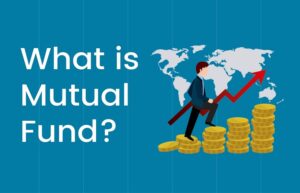The Impact of BTC to Naira Exchange Rate on the Nigerian Economy
In latest years, the rise of digital currencies has transformed the worldwide financial panorama, and Nigeria is no exception. Bitcoin (BTC), the most well-liked cryptocurrency, has gained significant traction in the Nigerian market. As more Nigerians embrace BTC as a type of investment and fee technique, its change rate with the Nigerian Naira (NGN) has become essential in determining the nation’s financial outlook.
Volatility and Speculation
The BTC to Naira trade rate is understood for its volatility. Fluctuations on this trade price can have a profound impact on the Nigerian financial system. Bitcoin is a decentralized foreign money, which means it is not regulated by any central authority or authorities. This lack of regulation makes it vulnerable to wild price swings driven by market speculation.
Nigerians who put cash into BTC are continuously exposed to those worth fluctuations. When the BTC to Naira exchange rate is high, it encourages extra Nigerians to spend cash on Bitcoin, hoping to make substantial profits. Conversely, a drop in the trade price can lead to panic selling, inflicting further depreciation of the Naira and potential economic instability.
Remittances and Financial Inclusion
Another aspect of the impression of BTC to Naira change rate on the Nigerian economic system lies in remittances. Nigeria receives a significant quantity of remittances from its residents living abroad. Traditionally, these remittances are subject to high fees and long processing instances through conventional banking channels.
Bitcoin and other cryptocurrencies offer an alternative solution for remittances. By leveraging blockchain technology, individuals can send money instantly and at a lower cost using BTC. However, the exchange rate between BTC and Naira plays how can i buy bitcoin with my debit card a crucial role in determining the value received by recipients in Nigeria. A favorable exchange rate ensures that more funds are available for beneficiaries, which can contribute to increased purchasing power and economic growth.
Regulatory Challenges and Opportunities
One of the challenges posed by the impact of BTC to Naira exchange rate is regulatory oversight. Central banks and governments worldwide struggle with buy tether usdt finding the right balance between embracing digital currencies and protecting investors from potential risks. Nigeria is no exception in this regard.
The Central Bank of Nigeria (CBN) has issued warnings in regards to the risks related to cryptocurrencies, together with Bitcoin. These issues primarily stem from the dearth of regulation and the potential for illicit activities. Consequently, the CBN has imposed restrictions on financial establishments from facilitating cryptocurrency transactions.
However, some experts argue that regulating Bitcoin and other cryptocurrencies might present opportunities for the Nigerian economic system. By establishing clear guidelines and frameworks, the government can entice extra investments and businesses associated to digital currencies. A balanced method that addresses risks whereas fostering innovation could unlock the total potential of cryptocurrencies, positively impacting Nigeria’s economic system.
Conclusion
The impact of the BTC to Naira change price on the Nigerian financial system cannot be underestimated. Volatility, remittances, and regulatory challenges all play a significant role in shaping the nation’s economic outlook. As extra Nigerians embrace Bitcoin and other cryptocurrencies, it turns into crucial for policymakers and regulators to develop appropriate frameworks to harness their benefits while managing associated dangers.



